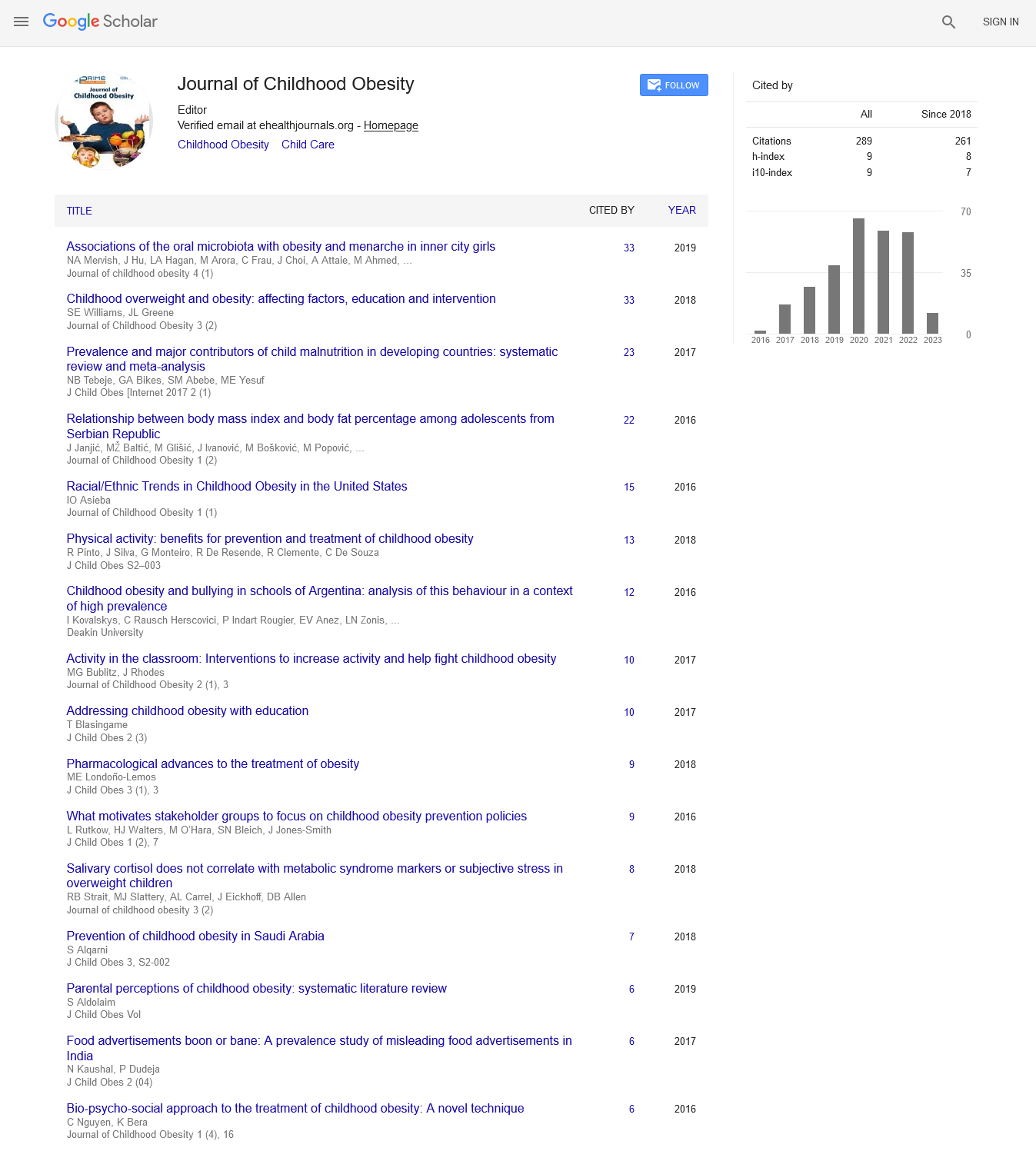Commentary - (2023) Volume 8, Issue 5
Unwrapping the Health Hazards: The Impact of Fat and Junk Foods on Children's Well-being
Aiden Butler*
Department of Health Sciences, Vanderbilt University, United States of America
*Correspondence:
Aiden Butler,
Department of Health Sciences, Vanderbilt University,
United States of America,
Email:
Received: 02-Oct-2023, Manuscript No. ipjco-23-18442;
Editor assigned: 04-Oct-2023, Pre QC No. ipjco-23-18442 (PQ);
Reviewed: 18-Oct-2023, QC No. ipjco-23-18442;
Revised: 23-Oct-2023, Manuscript No. ipjco-23-18442 (R);
Published:
30-Oct-2023, DOI: 10.21767/2572-5394-23.8.52
Description
In an era dominated by convenience and fast-paced lifestyles,
the prevalence of fat and junk foods has become a concerning
aspect of modern childhood. These highly processed, calorie-
laden snacks and meals not only contribute to the rising rates
of childhood obesity but also pose a myriad of health risks. This
article delves into the significant impact of fat and junk foods
on the health of our children, urging a reevaluation of dietary
choices for the well-being of the younger generation. Obesity
Epidemic at the forefront of the issue is the obesity epidemic
gripping children worldwide. The excessive consumption of fat
and junk foods, rich in empty calories and low in nutritional value,
is a key contributor to the alarming rise in childhood obesity.
This condition not only affects a child’s physical appearance
but also sets the stage for a host of health problems, including
cardiovascular diseases, diabetes, and musculoskeletal issues.
Nutrient Deficiency Fat and junk foods are often loaded with
sugars, saturated fats, and salt, but lack essential nutrients vital
for a child’s growth and development. Continuous consumption
of these foods can lead to nutrient deficiencies, affecting
bone health, cognitive function, and immune system strength.
The lack of crucial vitamins and minerals hampers a child’s ability
to thrive both academically and physically. Dental Health
Complications the high sugar content in many junk foods contributes
to poor dental health in children. Regular consumption
of sugary snacks and beverages leads to tooth decay and
cavities, impacting not only a child’s oral health but also their
overall well-being. Dental issues can affect a child’s confidence
and quality of life. Behavioral and Cognitive Emerging research
suggests a connection between unhealthy diets and behavioral
issues in children. Excessive intake of sugary and processed
foods has been linked to attention problems, hyperactivity, and
poor concentration. A balanced diet, rich in essential nutrients,
is crucial for optimal brain function and cognitive development.
Increased Risk of Chronic Diseases long-term consequences of
a diet high in fat and junk foods extend into adulthood, elevating
the risk of chronic diseases. Children who grow up consuming
unhealthy foods are more likely to develop conditions
such as type 2 diabetes, hypertension, and cardiovascular diseases
later in life. Early intervention through improved dietary
habits is essential to breaking this cycle. Establishing Healthy
Eating Habits Educating both parents and children about the
importance of healthy eating habits is paramount. Encouraging
a diet rich in fruits, vegetables, whole grains, and lean proteins
helps establish lifelong habits that promote overall well-being.
Schools and communities play a vital role in fostering an environment
that supports healthy food choices. Limiting Access to
Unhealthy Foods It is essential to address the availability and
accessibility of fat and junk foods, especially in schools and
public spaces. Implementing policies that restrict the marketing
and sale of unhealthy snacks to children can contribute to
creating a healthier food environment. As the impact of fat and
junk foods on children’s health becomes increasingly evident,
it is crucial for parents, educators, and policymakers to collaborate
in fostering a culture of nutrition and well-being. By recognizing
the consequences of unhealthy dietary choices, we can
empower the younger generation to make informed decisions
about their nutrition, ensuring a healthier and brighter future
for our children. Prioritizing balanced and nutritious meals is
not only an investment in their physical health but also in the
overall resilience and vitality of our future leaders and contributors
to society.
Acknowledgement
None.
Conflict Of Interest
The author declares there is no conflict of interest in publishing
this article.
Citation: Butler A (2023) Unwrapping the Health Hazards: The Impact of Fat and Junk Foods on Children’s Well-being. J Child Obesity. 8: 52.
Copyright: © 2023 Butler A. This is an open-access article distributed under the terms of the Creative Commons Attribution License, which permits unrestricted use, distribution, and reproduction in any medium, provided the original author and source are credited.

